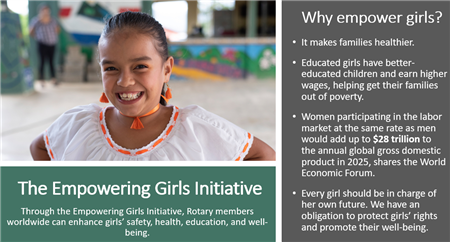
A Platform for Empowerment and Innovation
On July 18, 2025, the University of Energy and Natural Resources (UENR) in the Bono Region of Ghana became a vibrant hub of inspiration and collaboration. The World Food Forum (WFF) Ghana Chapter, in partnership with UENR’s Office of Women’s Commissioner, organized a forward-thinking dialogue focused on empowering young Ghanaian women in agri-food systems through youth-led actions. This event brought together approximately 150 participants, including young women entrepreneurs, students in agriculture, food, and nutrition disciplines, as well as beginner agribusinesses and agripreneurs.
The session featured seven student panellists from various agricultural disciplines: Alberta Obeng, Juliet Adu Nketia, Vida Fakornam Agbetsiafa, Rosemond Koto Deladem, Pearl Seyram Adoboli, Bernice Donkor, and Beatrice Yayra Asamani. Each shared their unique experiences and insights, highlighting the urgent need to deepen research, advocate for gender policy reviews, and adopt strategies that support the empowerment of young women in agri-food systems.
Key Challenges Identified
Participants identified several challenges that hinder the growth and sustainability of young women in the sector. These included limited access to mentorship, insufficient funding, lack of networking platforms, unfriendly gender policies, and inadequate educational activities tailored for women. Other issues such as cultural expectations, low self-confidence, societal discouragement, and limited publicity in educational programs were also discussed.
Pearl Seyram Adoboli, a BSc Agriculture student, emphasized the importance of mentorship and supportive networks, stating that forums like this provide the courage and clarity needed to pursue agricultural ventures. Bernice Donkor, a Food Technology student and co-founder of BKB Foods, highlighted emotional and cultural obstacles, stressing the need to change the narrative that farming is not for women.
Vida Agbetsiaf, a Food Technology student, shared her experience of small-scale food processing and the financial constraints she faces. She recommended structured mentorship and training programs, along with access to start-up capital and equipment, to help young women scale their businesses.
Beatrice Asamany, a multifaceted student leader and co-founder of BIAQ Golden Cycle, spoke about the challenges of limited networking and operational funds. She believes that encouraging and empowering women through networking, market access opportunities, and mentorship is crucial for building a vibrant food system.
Anita Ampomaa Oduro, who produces and sells fruit drinks and cookies, noted the challenges of brand awareness and trust-building around her products. Alberta Obeng, founder of OSAA Agrochemical Shop, recommended bringing educative programs to rural communities to benefit more youths.
Clementina Owusuaa Ama, passionate about food innovation, highlighted the need for infrastructure and resources to process and preserve local crops. She stressed the importance of collaboration between academia, industry, and government to promote research and development in the agrifood sector.
Forward-Looking Recommendations
In response to these challenges, the students made several recommendations. These included establishing structured mentorship and leadership development programs, creating youth-inclusive agricultural networks, improving access to funding, and launching confidence-building initiatives tailored for young women. They also emphasized the need to challenge gender biases through education and sustained community outreach.
Alberta Nana Akyaa Akosa, National Director of the WFF Ghana Chapter, reaffirmed the organization’s commitment to inclusivity for youth and women. She emphasized the importance of harnessing the creativity, resilience, and leadership of young people to build equitable and sustainable food systems.
Mrs. Phillipa Mensah, Director for Women and Social Protection at WFF Ghana, encouraged students to remain bold and proactive, emphasizing that they are present-day changemakers. She noted that WFF Ghana is rolling out localized strategies aligned with global agendas of promoting equity and resilience in agrifood systems.
Amanda Mrad, a Youth Local Action Team member at the World Food Forum, emphasized the urgent need to advance women’s empowerment in agrifood systems through youth-led action. She acknowledged the historical underrepresentation of young women in policy and decision-making spaces and highlighted the importance of their unique challenges and diverse identities.
Mr. Ernest Bachela Mbawini, Assistant Registrar of the School of Agriculture and Technology at UENR, reaffirmed the university’s commitment to deepening collaboration with WFF Ghana. He pledged to integrate more hands-on agricultural experiences into the academic curriculum and support student-led agribusiness ventures.
Through open dialogue and grassroots-led solutions, the World Food Forum Ghana Chapter is nurturing a new generation of women innovators in agriculture. As these student-led ideas evolve into actionable pilot projects, they hold the promise of redefining the country’s food systems, making them more inclusive, sustainable, and youth-driven. By investing in the energy, ideas, and leadership of young people, especially women, Ghana is shaping its agrifood future and contributing meaningfully to a global movement toward food equity and resilience.


Posting Komentar